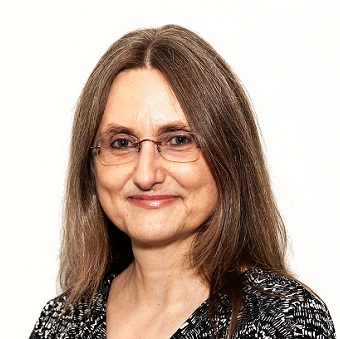Biography
Social Gerontology & Wisdom

Monika
Ardelt
Monika Ardelt, Ph.D., is Professor of Sociology at the University of Florida. She is a Brookdale National Fellow, a Fellow of the Gerontological Society of America, and the Executive Secretary of the Society for the Study of Human Development. Her research focuses on successful human development across the life course with particular emphasis on the relations between wisdom, psychological well-being, spirituality, aging well, and dying well.
Transcription of the video
Which domain or aspect of social life will show the most significant positive societal and/or psychological change in response to the pandemic?
One positive note might be that we realize that these kinds of pandemics, or these kinds of global events, can only be solved if we work together as a community, as a world community. And that’s does not only mean different countries working together, but also working together between rich and poor. So, because we are not safe if only the rich get the vaccines and the poor will not. And in some ways, what I hope what might come out of this is that this might be maybe a practice run for something more dangerous, a more dangerous pandemic later, but also for the effect of global warming, quite frankly, because a lot of people say that this is a really existential threat and we all have to work together. So, maybe this is a kind of a practice run to get us all working together, and then using the established connections to work on global warming and maybe other global problems.
What kind of wisdom will people need to capitalize on the positive societal and/or psychological change after the pandemic?
One of the things in the wisdom research, and from my Three-dimensional Wisdom Scale, is the reflective component. And in the reflective component, you know, you look at things from multiple perspectives, and looking at oneself from a third perspective, and hopefully, getting some insight into that we are all the same, you know. So that we are all… I’m not better than you and we have all our positive aspects, but we also have our negative aspects. And the hope is that this reduces a little bit our self-centeredness and helps us to becomeless self-centered and more self-transcendent. And I think this is what is required here: to be less self-centered, and thinking about our own tribe, our own family, our own country, you know. That we really see this as what Bob Sternberg calls “the common good.” We need to do this for the common good because it is not helping me to just take care of my own family for these global threats, like a pandemic, like global warming. We really have to work on this together. And so, overcoming self-centeredness, I think, is the key, which is also one of the components of wisdom.
Which domain or aspect of social life will show the most significant negative societal and/or psychological change in response to the pandemic?
Wherever you have the positive side, we’re realizing that we have to work together on this to overcome this. The other side of the coin is exactly that we become more self-centered and looking out for number one, and my tribe, which we have be seeing in the United States. You know, these really two tribes fighting each other and not really caring about others or caring about immigrants or caring about people who are poor, or who have no health insurance and all these kinds of things. So, because resources are scarce that means that we’re fighting over the resources and just looking out for ourselves and… yeah, our own family, the people that think like us, that look like us. And that would be the unfortunate negative outcome if it comes to that.
What kind of wisdom will people need to master to overcome major negative societal and/or psychological changes after the pandemic?
I am coming back to my reflective component to see basically that we are all in the same boat, that it doesn’t help me if only a part of society succeeds. It’s really if I am successful, if I am rich, if I am healthy, and a lot of my neighbors are not… that, in fact, it does affect me in some ways. It affects me in the long run, because people are unsatisfied, and they are not happy and they might actuallywant changes and then they might vote for somebody who does not necessarily have the best interest in mind for them, but the person might promise them, and… I’m from Germany, and we had a situation like that, and it didn’t turn out very well. This is really about the common good, and not just about me. If I have health insurance, but my neighbor does not, and therefore I cannot afford to get tested for COVID and infect everybody else. Or because my neighbor wants to go and doesn’t wear a mask because individualism – “I should have the freedom” and then infects a lot of other people and they infect a lot of other people. This doesn’t help anybody. So, really, to thinking about the next person – “how can we help the next person to succeed under these conditions,” and then having a positive ripple effect, rather than a negative ripple effect. So just the insight that we’re all connected, we are not individuals, but we are all connected in some ways. If we have a positive influence on each other, then everybody wins. It’s a win-win situation. Rather than if I’m just thinking about myself, then in the end it will not be beneficial for me.
What piece of wisdom do people need to make it through the pandemic?
So right now, I think people are impatient. They want to go out, they want to meet with friends, they want to go to a restaurant, they don’t want to be a mask everywhere. And as a lot of public health officials are saying, you know, just be patient. And one of the things what I think wisdom teaches is develop this patience, develop this acceptance for things you cannot change. So, it’s like the Stoics, right? You have to first find out, is this a situation that you can change, that you have control over it? And if you don’t have control over it, then you have to accept it. And right now, is COVID a situation that we have control over? Do I have control over it right now? And no, I don’t have control over it that I can wish it away. But I have control over that I can wear a mask and I can obey social distancing, and try to protect others. And if everybody does the part that they have control over, the situation will look so much better. So, it’s this patience, and developing of acceptance and development of equanimity and knowing that this will get better, that this will change. It will get better. It’s just that we have to have a little bit more patience and wait until we all get vaccinated. And then, you know, it basically disappears. But it’s not enough to just wishing it that it disappears, and it really has to run its course.
Themes discussed in this interview

